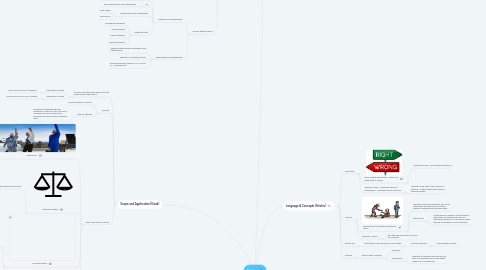
1. Methodology (Rohan)
1.1. Theory Production
1.1.1. Theoretical Approach
1.1.1.1. Kant
1.1.1.2. Bentham
1.1.2. Experimental Approach using methods of NS
1.1.2.1. J. Greene
1.1.3. Experimental Approach using methods of HS
1.1.3.1. J.Haidt
1.1.3.2. Hauser
1.2. Fact?
1.2.1. Normative Statements
1.2.1.1. Culture and Context Dependent
1.2.1.2. Kindness is a virtue.. etc
1.2.2. Accepted Principles
1.2.2.1. Culture and Context Dependent
1.2.2.2. Principle of human dignity etc.
1.2.3. Theoretical Framework
1.2.4. Empirical facts
1.2.4.1. Used in experimental ethics
1.2.4.2. neuroscientists
1.2.4.3. psychologists
1.3. Ethical Theories and Predictions
1.3.1. Explain principles and mechanisms of ethical/unethical statements
1.4. How do ethicists work?
1.4.1. Traditional moral philosophy
1.4.1.1. SK
1.4.1.1.1. Reading the work of other philosophers
1.4.1.2. PK
1.4.1.2.1. The importance of one's experiences
1.4.1.3. Approaches to the investigation
1.4.1.3.1. Logic based
1.4.1.3.2. First person
1.4.1.4. Reflective tools
1.4.1.4.1. convergent awareness
1.4.1.4.2. critical thinking
1.4.1.4.3. creative thinking
1.4.1.4.4. divergent thinking
1.4.2. Experimental moral philosophy
1.4.2.1. Based on experimental investigation and interpretation
1.4.2.2. extension of traditional Ethics
1.4.2.3. novel methodology (similar to HS+ use of NS - neuroscience)
2. Historical Development (Adhiraj)
2.1. Ethics are the moral principals that govern someones actions.
2.2. Ethics have been around for a very long time
2.2.1. In the past, ethics have been one of the only forms to distinguish right from wrong
3. Scope and Application(Vivek)
3.1. Morality: the way people should act/ the beliefs people should hold
3.1.1. Prescriptive Morality
3.1.1.1. How morals SHOULD be applied
3.1.2. Descriptive Morality
3.1.2.1. How morals are ACTUALLY applied
3.2. Purpose
3.2.1. to allow society to function
3.2.2. Produce theories
3.2.2.1. explaining morality through the exploration of what is moral, the use of frameworks to apply these moral principles and the benefits of applying them
3.3. Ethics: the study of morals
3.3.1. Meta Ethics:
3.3.1.1. What does it mean for something to be right or wrong.
3.3.2. Descriptive Ethics
3.3.2.1. Comparing people's beliefs and morality
3.3.3. Normative Ethics
3.3.3.1. Using Meta Ethics(particularly the assumption that there is a right and wrong) to create a framework for actions considered right or wrong
3.3.4. Applied Ethics
3.3.4.1. applying ethics to a real life situation e.g. Medical Ethics, Legislative Ethics, Business Ethics
4. Language & Concepts (Krishiv)
4.1. Absolutism
4.1.1. Black & white perspective - actions are either right or wrong.
4.1.1.1. stealing is wrong - circumstances irrelevant
4.1.2. opposite of this - consequentialism & utilitarianism - calculates the net outcome
4.1.2.1. stealing can be right, if the outcome is positive - hungry parent steals food for starving children
4.2. Altruism
4.2.1. helping with out expecting anything in return
4.2.1.1. decisions, actions, implications, etc. are all dependent upon the culture, location, people in which the decision was made
4.2.1.2. selflessness
4.2.1.2.1. can we every be selfless? if we choose to help others for nothing, does the self satisfaction given to us in doing this mean that we are acting in our own interests?
4.2.2. opposite - egoism
4.2.2.1. idea that we should act in our own self-interests
4.3. golden rule
4.3.1. treat others as we would like to be treated
4.3.1.1. idea of reciprocity
4.3.1.1.1. you get what you give
4.4. morality
4.4.1. what is right & wrong?
4.4.1.1. relativism
4.4.1.2. universalism
4.4.1.2.1. idea that all decisions are universal, we have a fundamental set of rules which guide us in our behaviours
5. Personal Knowledge
5.1. What is the nature of the contribution of individuals you know personally to this area, in terms of your experience?
5.2. What responsibilities rest upon YOU by virtue of YOUR knowledge in this area? (Krishiv)
5.2.1. As members of UWCSEA we are held to a high ethical regard in a number of areas
5.2.1.1. sustainability
5.2.1.1.1. we appreciate the ethical issues which arise from ordering food to school - carbon footprint
5.2.1.2. integrity
5.2.1.2.1. we understand that certain situations require the approach of absolutism and others utilitarianism
5.2.1.2.2. with such a holistic education, we are required to appreciate that culture has an effect upon the 'rightness' of ones actions.
5.2.1.3. compassion
5.2.1.3.1. it is ethical to be compassionate - idea of altruism is promoted and the golden rule
5.3. What are the implications of this area of knowledge in terms of YOUR individual perspective? (Vivek)
5.3.1. We conduct ourselves in a way that is ethical according to our own conceptions of what is and what isn't ethical
5.3.1.1. For someone, they might value conserving the environment rather than convenience
5.3.1.1.1. Hence, the action of taking a plastic bag from a supermarket is unethical for that person
